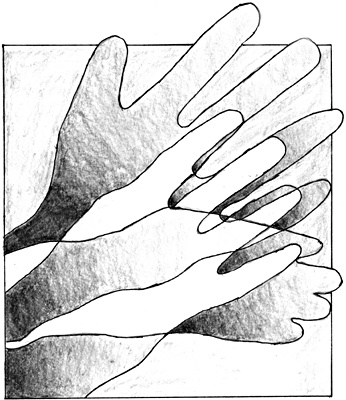All Nonfiction
- Bullying
- Books
- Academic
- Author Interviews
- Celebrity interviews
- College Articles
- College Essays
- Educator of the Year
- Heroes
- Interviews
- Memoir
- Personal Experience
- Sports
- Travel & Culture
All Opinions
- Bullying
- Current Events / Politics
- Discrimination
- Drugs / Alcohol / Smoking
- Entertainment / Celebrities
- Environment
- Love / Relationships
- Movies / Music / TV
- Pop Culture / Trends
- School / College
- Social Issues / Civics
- Spirituality / Religion
- Sports / Hobbies
All Hot Topics
- Bullying
- Community Service
- Environment
- Health
- Letters to the Editor
- Pride & Prejudice
- What Matters
- Back
Summer Guide
- Program Links
- Program Reviews
- Back
College Guide
- College Links
- College Reviews
- College Essays
- College Articles
- Back
Shades of Bias MAG
In India, the skin-whitening market has skyrocketed since the 1970s, with products claiming to lighten skin abounding. The most famous, Fair and Lovely, and its male counterpart, Fair and Handsome (both made by Hindustan Unilever) have been widely popular, with ads appearing on most Indian television channels. These skin-lightening products are racist, dangerous, and morally wrong because they promote the idea that white is better, which across the world, people are trying to reverse.
In recent years, American culture has made great strides in trying to respect dark-skinned people through affirmative action and by creating major roles in music, acting, and fashion. Unfortunately, this is not the case in South Asian countries, including India. Darker-skinned people are often openly shamed, as one famous (or infamous) ad for Fair and Lovely demonstrates. In the ad, a young woman’s father is upset because with her dark skin, she can’t attract a spouse or get a good job to support the family. She applies to be an air hostess but is rejected. Meanwhile a fair-skinned applicant walks out smiling, presumably because she got the job. The father gives his daughter a bottle of Fair and Lovely cream, and she looks much lighter-skinned after she uses it. She reapplies for the job and gets it, and the dad rejoices. The ad suggests that dark-skinned people are inferior to fairer people, even though most of South Asia is not naturally fair. The product propagates a deep negative association with dark skin.
Bollywood actor and superstar Shahrukh Khan stars in an ad for Fair and Handsome, increasing the pressure even more to be light-skinned. The ad shows him walking down a red carpet with cameras flashing everywhere. He stops to greet a dark-skinned male fan. The man then sees Khan act bravely in an action movie and is impressed by his fighting skills. Backstage, Khan approaches the fan again, this time handing him the Fair and Handsome cream, flagged by a group of giggling female admirers. The fan, after using the cream, is now much lighter, and is walking in Khan’s place, with his own swarm of women. The ad cleverly uses a popular media figure to convince people to join the bandwagon, clearly implying that being fair will make you famous, respected, and attractive to women, again shaming those with dark skin.
Fair and Lovely, however, isn’t just culturally damaging; it’s also bad for users’ health. The cream, in tests, was found to contain chemicals including mercury, which is poisonous; hydroquinone, which is banned; and cortisone, typically obtained by prescription. Fair and Lovely lightens skin by breaking down the melanin, which is what gives skin its pigment. Removing melanin can cause serious problems like skin cancer, because melanin protects skin from the sun’s harmful UVA and UVB rays. Ironically, the Fair and Lovely formula includes three types of sunscreen lotions.
Some argue that using the fairness cream is worth any risk, as long as they gain acceptance and a higher salary. However, for those who choose not to use it or don’t have access to it – the larger part of dark-skinned society – the prejudice against dark skin shames them. Isn’t it better for everyone if we change the mindset about dark skin?
Fairness creams propitiate negative ideas about darker skin and can even cause skin cancer. Society, as a whole, should make an effort to be more accepting of everyone, regardless of their skin color.

Similar Articles
JOIN THE DISCUSSION
This article has 0 comments.
